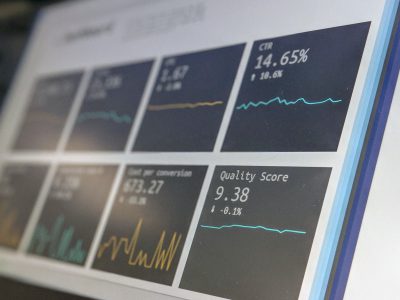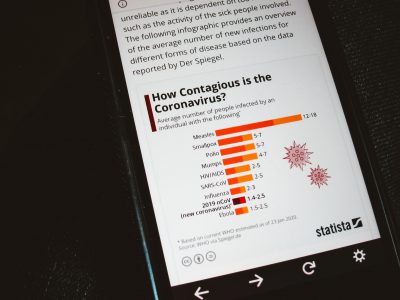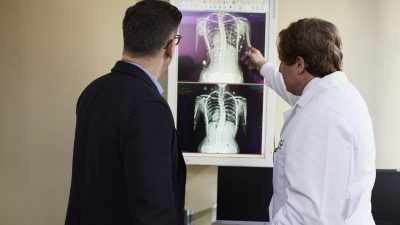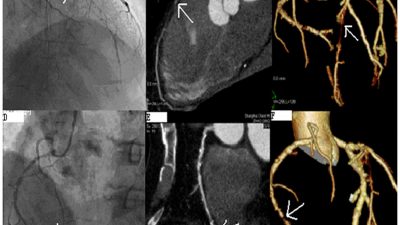With COVID-19 fears causing cancellations of large, international scientific conferences, many are looking to the potential of virtual learning in cardiology for spreading the latest science and best practice information to clinicians. What do we gain from virtual learning in cardiology? What do we lose? And can we trust what we learn on social media?
ACC Issues COVID-19 Guidance for Cardiologists – Cardiovascular Business
Perhaps most importantly, in the short-term, is the clinical impact and implications of coronavirus. The American College of Cardiology released guidelines for cardiologists, today. “The ACC cautioned that COVID-19 might ‘overshadow’ the classic signs and symptoms of acute MI, so, to avoid underdiagnosis, cardiologists should keep an eye out for more run-of-the-mill cardiac cases, too,” summarizes Cardiovascular Business’s Anicka Slachta. “The College said specific protocols should be developed to manage AMI in the context of a COVID-19 outbreak, with specific emphasis on acute PCI and CABG and keeping lab personnel to a minimum.” Read more »
Pace of Medical Conference Shutdowns is Accelerating as the Coronavirus Outbreak Spreads – STAT
On Monday, STAT produced an excellent article summarizing the fallout of medical conference cancellations like that of the American College of Cardiology Scientific Sessions. They’re also maintaining an up-to-date list on the status of large healthcare conferences. But perspectives from attendees and vendors are significant—lost opportunities to network are weighing on both clinicians and companies, and have implications for the advancement of best practices in the short term. “I’ll miss the instant feedback from being able to answer questions,” said Matthew Spinelli, MD, a clinical research fellow at the University of California, San Francisco, to STAT. “There’s a certain energy that you get from a live presentation that can’t be replicated online.” Is virtual learning in cardiology missing that x-factor? Read more »
COVID-19 Begs the Question: If Medical Meetings Go Virtual, What Do We Gain and Lose? – TCTMD
Asif Qasim, PhD, founder and CEO of MedShr, wrote an opinion piece for TCTMD last week that summarizes prevailing feelings about COVID-19 and rationales behind the cancellation of large cardiology conferences. His perspective also continues the conversation by taking a look at advancements in virtual learning and collaborative software and solutions which may facilitate a trend towards more virtual education. Is COVID-19 a tipping point? “The COVID-19 travel bans have also prompted a lot of soul-searching as to how digital solutions can help to bring education to physicians who can’t—or would rather not—be on-site,” writes Qasim. “Climate change and the impact of air travel have already brought into question the hidden environmental cost of international congresses; it could be that the COVID-19 epidemic becomes the tipping point in a move towards more virtual education and collaboration. What might be lost in terms of the intangible and unmeasurable importance of face-to-face contact and in-person learning—only time will tell.” Read more »
Trial by Twitter: How a 280-Character Count Is Reshaping Cardiology – TCTMD
Also on TCTMD last week, perhaps coincidentally, was a fascinating look into the world of #CardioTwitter, where clinicians discuss science and best practices on a social media platform that can be a “caustic environment.” Twitter has become central to the idea of virtual learning in cardiology, but is that ideal? The article is a fascinating dive into the pros and cons of social media—could social media be an adequate replacement for a scientific conference season? “The great strength of Twitter is also part of its weakness,” said Marc Dweck, MD, PhD of the University of Edinburgh, Scotland to TCTMD. “People are often reading things quickly and firing off quick tweets and then things accelerate quite quickly.” Read more »
Telemedicine is Broadening its Role in Cardiac Care – HealthTech
Also significant to the larger trend defining the moment is telemedicine—a modality which may help clinicians continue to provide high quality cardiac care in the situation of a pandemic. Last Month, HealthTech took a look at how clinicians are using video conferencing to improve the patient experience. Read more »

The Value of Quality Matters
The every day work of cardiovascular clinicians has a massive impact on public health and safety. Making time to continue scientific and best practice discussions to improve that care is all the more important as coronavirus impacts the cardiology conference schedule. Accreditation for Cardiovascular Excellence produces this Quality Matters newsletter to facilitate these quality-related discussion year-round. As virtual learning in cardiology becomes more important, we hope you’ll continue to access Quality Matters as a resource for focusing your attention on matters impacting clinical quality.












